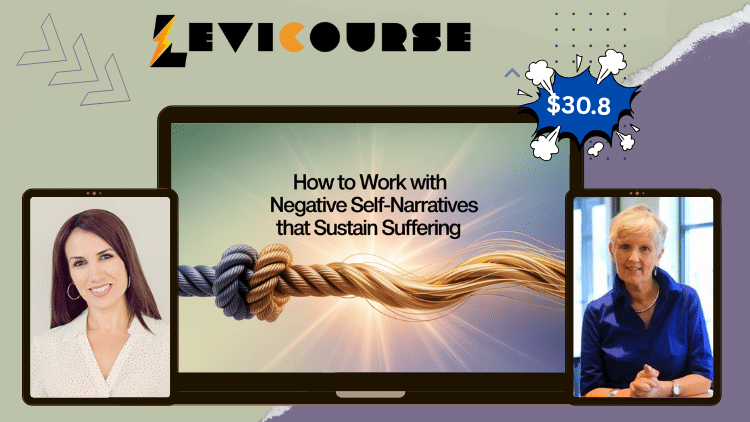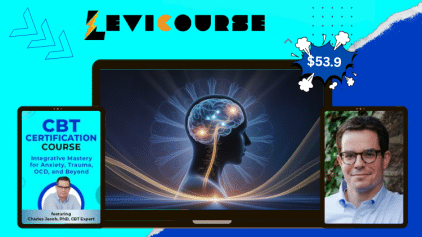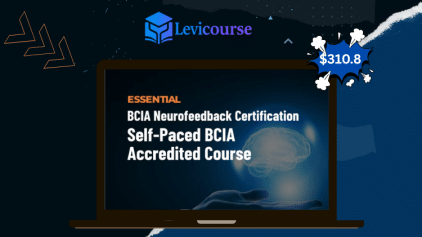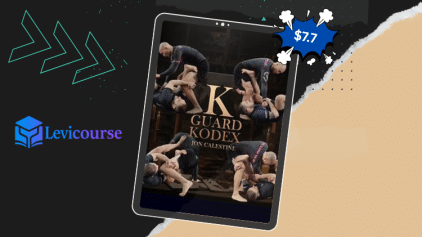Free Download How to Work with Negative Self-Narratives That Sustain Suffering by Nicabm – Includes Verified Content:
All About This Master-Level Training Featuring 27 World-Renowned Experts, Which Is Designed To Help Mental Health Professionals Transform Clients’ Painful Self-Stories Into Empowering Narratives Of Healing And Growth
How to Work with Negative Self-Narratives That Sustain Suffering by NICABM – You Can Watch This Video Sample for Free to Know More Information:
How to Work with Negative Self-Narratives That Sustain Suffering by NICABM – You Can Also View The PDF Sample below to Catch A Glimpse of The Content Inside:
How to Work with Negative Self-Narratives That Sustain Suffering by NICABM – And Finally, You Can Check The Content Proof Here:
How to Work with Negative Self-Narratives That Sustain Suffering by NICABM – Transform the Stories That Keep Clients Stuck
How to Work with Negative Self-Narratives That Sustain Suffering is a practical, evidence-informed training for mental health clinicians. Learn step-by-step strategies from 27 leading experts to loosen rigid beliefs, update trauma-based identities, disentangle diagnosis from self, and co-create compassionate, flexible narratives that support healing and change.
Why This Training Matters
Inside every client lives a story shaped by early experiences, trauma, culture, and meaning-making. When that story narrows into “I’m broken,” “It’s my fault,” “I’ll always be this way,” it fuels shame, despair, and stuckness.
This course shows you how to honor lived experience while gently updating the narrative—so clients gain agency, self-compassion, and choice.
What You’ll Learn (Core Modules & Tactics)
1) Working with Rigid Self-Narratives Clients Feel Powerless to Change
Faculty: Michael Yapko, PhD · Shelly Harrell, PhD · Christine Padesky, PhD · Melanie Greenberg, PhD · Bill O’Hanlon, LMFT
-
Experiential exercise to broaden a client’s narrative scope without invalidation
-
A mindfulness-based approach to help clients envision themselves untethered from the old story
-
How to name costs/benefits of the current narrative and invite collaborative revision
-
A protocol for when new insights collapse back into the old storyline
2) Treating Trauma-Based Narratives
Faculty: Bessel van der Kolk, MD · Stephen Porges, PhD · Bonnie Goldstein, PhD · Deany Laliotis, LICSW · Rick Hanson, PhD
-
Psychoeducation for a key consequence of trauma narratives (e.g., self-blame, hypervigilance)
-
A 3-step process to interrupt self-fulfilling prophecy loops
-
Practices to help clients step into a new identity even when trauma says “impossible”
3) When Identity Is Tied to a Diagnosis
Faculty: Lynn Lyons, LICSW · Ron Siegel, PsyD · Bill O’Hanlon, LMFT · Judson Brewer, MD, PhD · Kelly McGonigal, PhD
-
Why more clients are integrating diagnoses into identity—and the hidden costs
-
Concrete methods to create healthy distance (diagnosis ≠ identity)
-
Motivational strategies for clients clinging to diagnosis-based identity
4) Installing Positive Narratives that Foster Resilience & Agency
Faculty: Steven Hayes, PhD · Peter Levine, PhD · Christine Padesky, PhD · Kelly McGonigal, PhD · Judson Brewer, MD, PhD
-
A 5-step micro-action protocol—use tiny wins to author a new story
-
Reward-based learning tools to rewrite habitual self-talk
-
Mindfulness findings that clarify where to intervene
-
One future-focused strategy to author hopeful scripts clients can believe
5) A Parts-Based Approach for Conflicting Narratives
Faculty: Richard Schwartz, PhD · Dan Siegel, MD · David Wallin, PhD
-
Mapping multiple, competing narratives and who speaks each one
-
IFS skills to mediate inner conflicts and unblend extreme parts
-
Case example: revealing “sub-narratives” that drive symptoms
6) Precautions & Pitfalls When Working with Story
Faculty: Miguel Gallardo, PsyD · Deany Laliotis, LICSW · Zindel Segal, PhD · Pat Ogden, PhD
-
Missteps that push clients deeper into rigid stories (and what to do instead)
-
The balance between invalidating and over-validating
-
Grounding strategies when a client’s narrative feels overwhelming
-
The one assumption about narratives clinicians should avoid
7) Tracing the Origin of Painful Narratives
Faculty: Steven Hayes, PhD · Deany Laliotis, LICSW · Melanie Greenberg, PhD · Judson Brewer, MD, PhD · Kelly Wilson, PhD · Ron Siegel, PsyD · Rick Hanson, PhD
-
Precision questions to pinpoint origin points (developmental, cultural, relational)
-
Why specific details matter—and how to elicit them safely
-
How to spot “helpful” narratives that actually maintain avoidance
8) When Narratives Derail Relationships
Faculty: Terry Real, MSW, LICSW · Stan Tatkin, PsyD, MFT
-
Working with attachment-based stories that sabotage intimacy
-
Teasing apart dueling narratives in couples
-
A common challenge uniquely amplified in couples work—and how to plan for it
Course Format & Faculty Hosts
Hosted by: Ruth Buczynski, PhD (Founder & President, NICABM) and Ashley Vigil-Otero, PsyD (Program Developer, NICABM)
-
Concise downloadable videos (keep forever)
-
Audio MP3s for on-the-go review
-
TalkBack segments distilling key insights
-
Next Week in Your Practice—immediately usable strategies
-
Professional transcripts for fast referencing
-
3 bonus videos to deepen clinical application
Bonus Sessions
-
How the Nervous System Shapes Self-Narratives (and how to work with it) – Deb Dana, LCSW
-
3-step process for tracking autonomic shifts during narrative work
-
Techniques to bring flexibility and safety back online
-
-
Using EMDR to Target Past Experiences Blocking New Narratives – Laurel Parnell, PhD
-
Protocols to uncover narrative anchors in memory networks
-
How EMDR helps contextualize and update identity
-
-
Case Study: Using EFT to Shift a Fear-Based Narrative – Sue Johnson, EdD
-
The EFT component that reshapes emotional meaning in story
-
Key Clinical Skills You’ll Gain
-
Honor the story while loosening rigidity—without retraumatizing or invalidating
-
Use mindfulness, ACT, IFS, EMDR, Polyvagal, EFT and reward-based learning to re-author narratives
-
Build diagnosis distance and identity flexibility
-
Convert micro-actions into believable identity shifts
-
Mediate inner and interpersonal story conflicts (parts & couples work)
-
Avoid common missteps that entrench suffering
Who This Is For
Psychologists · Social Workers · Counselors · Marriage & Family Therapists · Psychiatrists · Coaches working within scope · All clinicians wanting research-grounded, cross-modality strategies to transform self-narratives.
What Makes This Course Different
-
27 experts across modalities—integrating neuroscience, trauma treatment, mindfulness, parts work, behavior change, and couples therapy
-
Implementation-ready: TalkBacks, “Next Week in Your Practice,” transcripts, and checklists
-
Own it for life: Revisit modules anytime to refresh interventions
Outcomes You Can Expect
After completing this training, you’ll be able to:
✅ Identify the functions and costs of a client’s current narrative
✅ Use targeted exercises to broaden rigid self-stories
✅ Untangle trauma-anchored identities and foster safe alternatives
✅ Create healthy separation between diagnosis and self
✅ Leverage reward learning & micro-actions to reinforce new stories
✅ Navigate parts conflicts and couples’ narrative impasses
✅ Maintain clinical steadiness when stories feel overwhelming
Final Thoughts – Help Clients Tell a Truer, Kinder Story
When clients can reclaim authorship of their story, behavior changes stick, relationships heal, and suffering eases.
How to Work with Negative Self-Narratives That Sustain Suffering gives you concrete, compassionate tools to guide that transformation—so your clients can move from “I am my pain” to “I am more than this, and I can change.”
👉 Enroll today and add a powerful, multi-modal narrative toolkit to your professional library—yours to keep forever.










Reviews
There are no reviews yet.